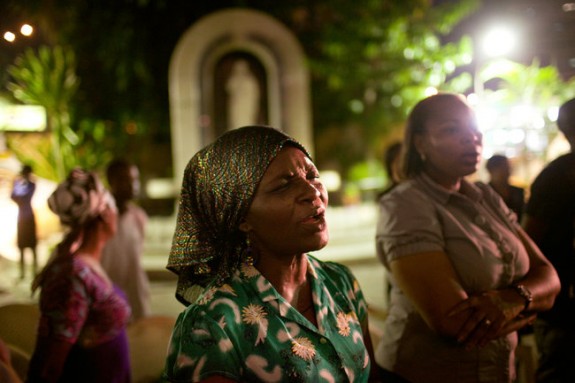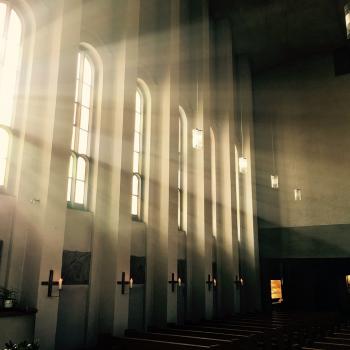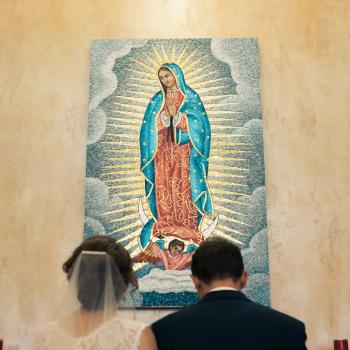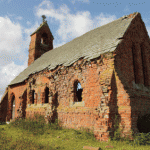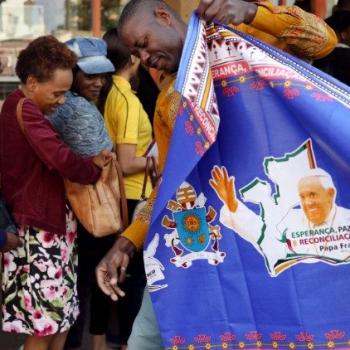The New York Times looks at the continent that some think could be the home of the next pope:
The young woman slept soundly on the cool marble floor before the altar, a break from the chaos at home. In the courtyard, neighborhood teenagers filled giant jerrycans with purified water from a stone fountain. In an aisle, a rail-thin young woman from a nearby slum said she had not eaten since yesterday but was expecting sustenance here.
Behind its high spiked iron gates in this frenetic megalopolis of anywhere between 11 million and 21 million, the church of Christ the King is protector, feeder and healer.
In the 6 a.m. darkness, this working-class church is already filled with parishioners in shirt-sleeves and T-shirts, a pool of hymn-singing light in a blacked-out neighborhood. Six Masses are celebrated here each Sunday for up to 10,000 people, and 102 people were baptized last Saturday. The parish priest, the Rev. Ikenna Ikechi, dreams of building a multistory community center to accommodate his growing flock. “Our only limitation is space,” he said.
The Roman Catholic Church’s explosive growth here and across Africa has led to serious talk of the possibility of an African cardinal succeeding Pope Benedict XVI, and clerics from Nigeria, Ghana and the Democratic Republic of Congo, which has the continent’s largest Catholic population, have been mentioned as top contenders.
With 16 percent of the world’s Catholics now living in Africa, the church’s future, many say, is here. The Catholic population in Africa grew nearly 21 percent between 2005 and 2010, far outstripping other parts of the world. While the number of priests in North America and Europe declined during the same period, in Africa they grew by 16 percent. The seminaries, clerical officials here say, are bursting with candidates, and African priests are being sent to take over churches in former colonial powers.
Untainted by the child sexual abuse scandals, the church here draws parishioners, many in their 20s and 30s, who flock eagerly to services, which can last hours, with no complaints.
“After work, a lot of young people come to Mass,” said Chinedu Okani, 29, an engineer in Lagos who was attending a service at the Church of the Assumption in the Falomo neighborhood. “It provides a serene environment.”
He acknowledges another attraction, too: that the church is a functioning institution in a country that lacks them. “The welfare system is not working here,” Mr. Okani said. “We find a way to make up for it: the family, and the church.”
Photo: Samuel James/New York Times

